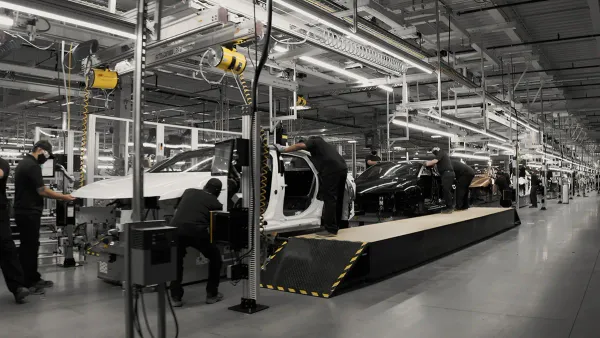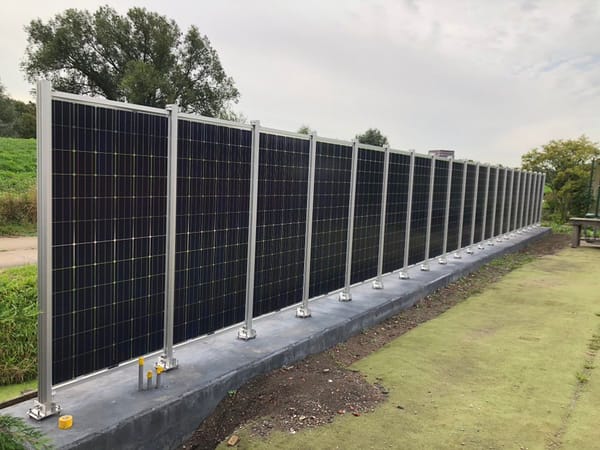Is geothermal basically fracking for green electricity?
Fracking is pretty straightforward. You drill two holes about a mile or two down, pump in some slurry through one hole, and then capture the oil and methane gas that comes out of the other hole. It turns out, geothermal energy, a carbon neutral method of
1. Geothermal energy’s fracking problem
Fracking is pretty straightforward. You drill two holes about a mile or two down, pump in some slurry through one hole, and then capture the oil and methane gas that comes out of the other hole. It turns out, geothermal energy, a carbon neutral method of electricity generation, is a similar process – drill two holes about a mile or two down, pump water in one hole, then capture the water coming back up that’s been superheated by the really hot rocks down below. Feed that steaming hot water into a turbine to make electricity, then push that cooled water back into the earth. This all sounds great, except that like fracking for oil and gas, it turns out big geothermal projects can sometimes create seismic events with all that water being pushed underground. Now, some indigenous groups in the Western United States are opposing geothermal projects, with fears that the drilling would destroy water tables, cause ground sinking, and harm native fauna.
Sources: NYT / Guardian / Economist
2. Car companies’ voracious new demand for minerals
All of a sudden car manufacturers need lots of minerals. EV car batteries require lots of lithium, nickel, copper, and cobalt, and until recently, most of those metals came from a limited number of places. For instance, as of 2019, 70% of cobalt came from the Democratic Republic of Congo, a country with child and slave labor problems. The second largest active source of cobalt is Russia, another country with some issues. So, companies like General Motors, Ford, and Stellantis are making direct investments to open up new mines in the U.S. and around the world so they can get first crack at the mined metals.
- Nevada is a potential source of lithium, and now has almost 60 new mining projects underway.
- South America has one of the world’s largest undeveloped lithium reserves, and Bolivia, Chile, and Argentina are moving to create not only new mines, but battery making companies.
3. Mo’ Manchin, Mo’ Problems
Remember the thing where GOPers were angry about coming gas stove regulations? And that it was a strange nothingburger because most gas stoves are installed in Democratic parts of the U.S.? Well, Democratic West Virginia Sen. Joe Manchin (and noted coal and gas baron) is jumping on that train, by blocking Department of Energy appointments that require Senate approval, since he doesn’t like the idea of regulating gas stoves for efficiency. Meanwhile, the Biden Administration has approved a West Virginia gas pipeline Manchin advocated for
4. Corporate “net zero” emissions claims are getting the boot in Europe
Often, when companies trumpet their green credentials, the claim is rooted in the purchase of carbon offsets, credits purchased by the company from credentialed organizations, who say things like, “In return for US$1 million, you get X number of credits because Y country has planted Z number of trees in the forest this year.” The trouble is, this entire system is based on a lot of assumptions that are quickly unraveling. For instance, last January The Guardian found that more than 90% of rainforest carbon offsets by one of the biggest certifiers were worthless. Last week, a new study found the way companies calculate their carbon footprint was largely bogus. And then yesterday, the EU banned claims of “carbon neutrality” due to purchased offsets. The UK is expected to take similar action. In the future, net zero claims will only be given to companies that make direct changes to their processes, for instance planes that fly on hydrogen, rather than fossil fuel, according to new EU rules.
4. European greenhouse emissions down 13% from last year
It turns out Russia’s energy bullying did some unintentional good. Following The Bear’s threats to cut off gas pipelines last winter, European countries instituted gas usage restrictions and rushed renewable projects online. As a result, Europe’s CO2 emissions are lower than during the pandemic and 13% less than 2022. New renewable projects are also increasingly coming on line. For instance, Portugal produced more than half its electricity from solar panels for the first time in April.
Source: Bloomberg
Other Things Happened
- With $12 billion in federal tax credits now available for carbon capture and sequestration (CCS), companies are rushing to get projects set up. But the EPA, whose ranks were eviscerated by the Trump Administration, has only approved 4 of 75 CCS applications so far, with dozens more proposals still in the pipeline.
- A new side deal for the debt ceiling negotiations includes speeding permitting for fossil fuel-driven power projects, in return for speeding permitting of electricity transmission projects – most of which are for wind and solar.
- Renewable diesel, made from soy and beef tallow, is now 50% of all diesel sold in California.
- Hotter temperatures and rising household incomes in developing countries add up to a projected 1 billion more air conditioners by 2030.
Walmart plans to add fast-charging EV stations (for a price) to thousands of Walmarts and Sam’s Clubs across the U.S. by 2030, creating one of the largest networks in the world.





